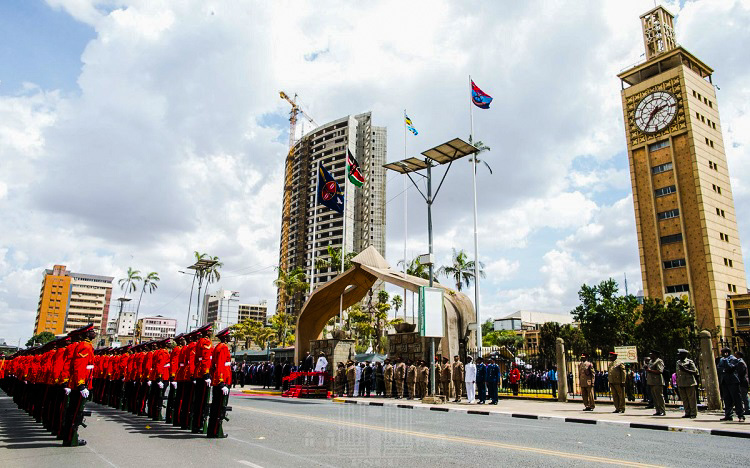This content has been archived. It may no longer be relevant
Kenya’s National Assembly has adopted KSh3.23 trillion budget estimates of revenue and expenditure for the fiscal year 2020-21.
The report’s adoption will pave the way for Treasury Cabinet Secretary Ukur Yatani to read the Budget for the financial year 2020-21 Thursday.
The House has this evening adopted the Report of the Budget & Appropriations Committee on the Budget Estimates for the Financial Year 2020-2021.
— National Assembly KE (@NAssemblyKE) June 9, 2020
However, the committee said “It was extremely disappointing to note that the policy framework of the 2020/2021 budget simply did not capture the magnitude of the crisis at hand. Instead of proposing measures to revamp healthcare and address the concerns of healthcare workers, protect the livelihoods through social safety nets, implement flood mitigation measures and propose an economic recovery strategy post-COVID, it was as business as usual as the national budget allocate significant resources to ongoing and new public investments while Covid-19 intervention measures to the Covid-19 Emergency Response Fund which is being managed outside the budget framework.”
According to the committee,’ channeling the government’s response to the pandemic through the national budget is extremely crucial in order to ensure transparency in use of public resources by subjecting these to legislative scrutiny and oversight.”
According to the BAC, the budget is anchored on a GDP growth projection of 4.2 percent in 2020/2021 based on a 2.5 percent projection in 2020 and approximately 5.8 percent growth in 2021.
READ
- Kenya’s Fiscal Deficit Rising Sharply With Revised Economic Growth of 3% in FY20
- KRA Misses its 2019-2020 Half-year Revenue Target by Ksh 73 billion
- East Africa: Kenya to Report Slowest GDP Growth in 2020
- Kenya’s GDP 2020 Growth ‘Remains Highly Uncertain’ – World Bank
The growth will be supported by ongoing public and private investments aligned to the Big Four Agenda, stable macroeconomic environment with inflation remaining within the target range, increased private consumption, and an expanded base post-COVID-19 pandemic.
The committee termed the growth ‘quite optimistic’ due to te reduced allocation to development spending with revenue and expenditure estimated to decline from 27.1 percent to 24.2 percent and 18.6 percent to 16.6 percent respectively.
Highlights
- Total expenditure and net lending are estimated at Ksh 2,732,98 billion.
- Recurrent expenditure at Ksh 1,805,2 billion.
- Development expenditure at Ksh 584.9 billion
- Post Covid-19 Economic Stimulus Programme Ksh 53.74 billion.
- Parliament has been allocated KSh37.7 billion; Judiciary KSh18.05 billion; the Executive KSh1.83 trillion.
In the report, National Treasury intends to finance the budget deficit by taking up foreign and domestic borrowing at Ksh 349.7 billion and Ksh 473.6 billion respectively.
“This trend is contrary to the previous undertaking by the National Treasury to ensure that there is reduced domestic borrowing as well as targeting cheaper financing from multilateral and bilateral sources,” said the report as it would likely crowd the Micro Small and Medium Enterprises (MSMEs).
BAC through its chair Kimani Ichungwa recommended that to manage the soaring debts, it is time for Kenya to renegotiate the terms of commercial loans to save on interest estimated at Ksh 180 billion.
READ
****
“The (Finance) Committee painted a bearish outlook on FY2020/21 revenue projections in its submission to the Budget and Appropriations Committee. Except for the proposed introduction of minimum tax coupled with the introduction of digital service taxes, we don’t price in any significant revenue-raising measures on the Finance Bill 2020 (partly on account of the recently enacted Tax Laws (Amendment) Act 2020 that had far-reaching consequences on revenue),” says Churchill Ogutu, analyst Genghis Capital, FY2020/21 Budget Topical Note II.
“We agree with the Budget and Appropriations Committee’s (BAC) tone that the revenue realism may be ambitious in backdrop of Covid-19 shocks. Slower consumption will have a negative knock-on effect on excise duty, VAT and import duty revenue streams. The worsened business environment will be detrimental on corporate income tax; and layoffs/reduced employment income will derail PAYE stream.”
READ




